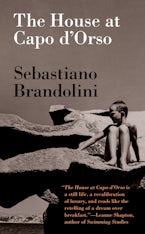Earlier feels like more than a memoir, more than an essay—almost more than a book could possibly hold. An expansive, hilarious, self-searching tribute to mortality and attachment and care and loss. Full of empathy, seemingly effortless, compulsively readable. Frere-Jones, who is always best, at his absolute best.
Elvia Wilk, author of Death by Landscape
Earlier is a gorgeous, prismatic memoir. It is an aching, inventive piece of memory work, lit by the universal light of grief. Its generosity and vulnerability are both contagious and humbling.
Catherine Lacey, author of The Biography of X
As a reconstruction of an incomplete life, a memoir in moments shuffled out of any chronology other than that of emotive and mnemonic affinities, Earlier ends short of the middle, when the author is twenty-one. He leaves the reader, like himself, stranded in time: what's next? There are no great lessons here, no disguised entreaties that the reader would be better off if he or she were more like the writer. What there is is a craft learned over decades, now applied to those moments, so they sing. As from less than 100 words on an Elvis Costello show (“I am sitting in the absolute back row”) from 1980: “It is two hours of pure force and connection, bit to bit, hook to hook, idea to idea.” A reader might end up feeling the same about this book.
Greil Marcus, author of Lipstick Traces: A Secret History of the 20th Century
This book, an account of Frere-Jones's coming of age, is marbled with illuminated time capsules of the New York 1970s and 80s, but it's not nostalgia. It's highly personal, an artful self-examination that floats, hovers, glows—and never wallows—on a pad of acute pain. I found it mesmerizing to read.
Rachel Kushner, author of The Mars Room, The Flamethrowers, and Telex from Cuba
Sasha Frere-Jones's autobiography-in-snapshots, with its artfully scrambled chronology, is a portrait of the artist as a young slob, undergoing a whole-body education in life. The shocks of recognition are universal, the specifics of the learning unique and fruitful. The book is so intimate and conversational it practically reads itself.
Lucy Sante
"If you love music, you have to fight for it," a former New Yorker pop-music critic writes in this slim, engaging volume... Haunted by the deaths of his father and his first wife, along with his struggles with mental illness and alcoholism, Frere-Jones excavates his life's triumphs and failures.
The New Yorker
Sasha Frere-Jones is an institution of music criticism in an era when music critics are no longer institutions.
Stephen Piccarella
The Nation












